By Ashley Festa
The government has set aside more than $13 billion for a foreign exchange education program. No, not the United States government – the Saudi Arabian government.
The University of the Incarnate Word (UIW) signed an agreement in June 2012 with Saudi Arabia to accept government-sponsored Saudi students. The arrangement is a win-win: UIW broadens its already diverse student population, and Saudi students gain a valuable U.S. education and experience, said Melissa Villanueva, the sponsored student coordinator in International Affairs.
To be sponsored by the Saudi government – which includes funding for tuition, fees, boarding and other expenses – students must attend a school approved by the Saudi Arabian Cultural Mission (SACM). While UIW met many of the organization’s required accreditation standards, SACM had some concerns. The Saudi organization wanted to ensure that the university would offer sufficient international support services to the incoming students. Because UIW values its international community, it already offers the needed assistance and later created the sponsored student coordinator position to support the additional students.
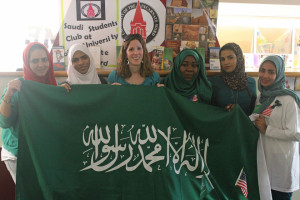
Amy DeStefano, international admissions counselor, shares a photo with members of the Saudi Student Club at the Saudi Arabia National Day event at Marian Hall Student Center on Sept. 23.
Religion courses also caused hesitation. SACM didn’t want another belief system forced upon the Muslim Saudi students. But UIW assured the organization that though it is a Catholic institution, the university welcomes and accepts all religions on its campus and in its classrooms, said Amy DeStefano, international admissions counselor.
With all concerns resolved, SACM approved UIW, and the university soon enrolled Saudi students into the approved programs. Computer information systems and education programs are some of the most popular with the Saudi students, Villanueva said.
The first government-sponsored Saudi students arrived for the Spring 2013 semester. More than 80 sponsored Saudi students are enrolled, compared with only six government-sponsored students from all other nations combined.
“Before too long, they may exceed the total student population from Mexico, which is about 140 students,” DeStefano said.
Much of Villanueva’s job is to assist the students with admissions and immigration. But she also spends time with them once they arrive on campus. Many of the Saudi students have already been studying English as a second language on the UIW campus, and with the new government sponsorship, those students can now enroll in degreed programs. These students transition to UIW smoothly because they are familiar with the community and campus facilities, DeStefano said.
But Saudi students who enter the U.S. for the first time often experience a culture shock, and Villanueva guides them to UIW’s counseling services to learn how to have a happy, healthy life at the university. She also follows up with students if they fail to maintain academic progress.
“Saudi students are very family oriented,” Villanueva said. “If a family member is sick back home, that will affect their grades. We find out what we can do to help them.”
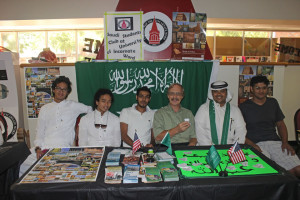
Abdullah Madkhaly (second from right), a government-sponsored student and president of the Saudi Student Club; Phil Youngblood (center), computer information systems instructor; and members of the Saudi Student Club pose for a photo at Saudi Arabia National Day.
The university offers other types of support as well, including a new Saudi Student Club formed in May to help these students connect with the university. Student members participate in a variety of ways, including sports, social events, cultural activities and academics.
“The goal of the club is to introduce and share our culture and activities with all students in addition to providing Saudi students with all the necessary information to ensure their success at the university,” said Abdullah Madkhaly, a government-sponsored student and president of the club, which has about 60 UIW members and 100 members from the ESL Language Center on the university campus. “The club also represents the Saudi student community to communicate with their fellow American students and students of different nationalities who are studying at UIW.”
Villanueva, the advisor for the Saudi Student Club, enjoys having the new students share their culture at UIW. She and DeStefano especially appreciated their participation at the annual International Food Festival, a highly popular campus-wide event where the UIW community comes together to share dishes representative of their native cultures.
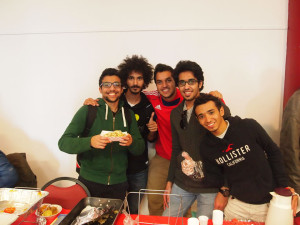
Government-sponsored students Sulaiman Almonsour, Faisal Alshareef, Yousef Alabdullah, Sami Alfayez and Baraa Aljahdali participate in the International Food Festival in the fall.
“Nineteen- and 20-year-old boys actually cooked food, and they didn’t go to the store and buy it,” DeStefano said. “They offered some really good dishes.”
The Saudi culture puts life in a new perspective for her. While she describes Americans as being more individualistic, Saudis are more community-oriented. She hopes to encourage American students to join the Saudi Student Club.
“It’s a very warm culture,” DeStefano said. “They want to break bread with us and share with us.”

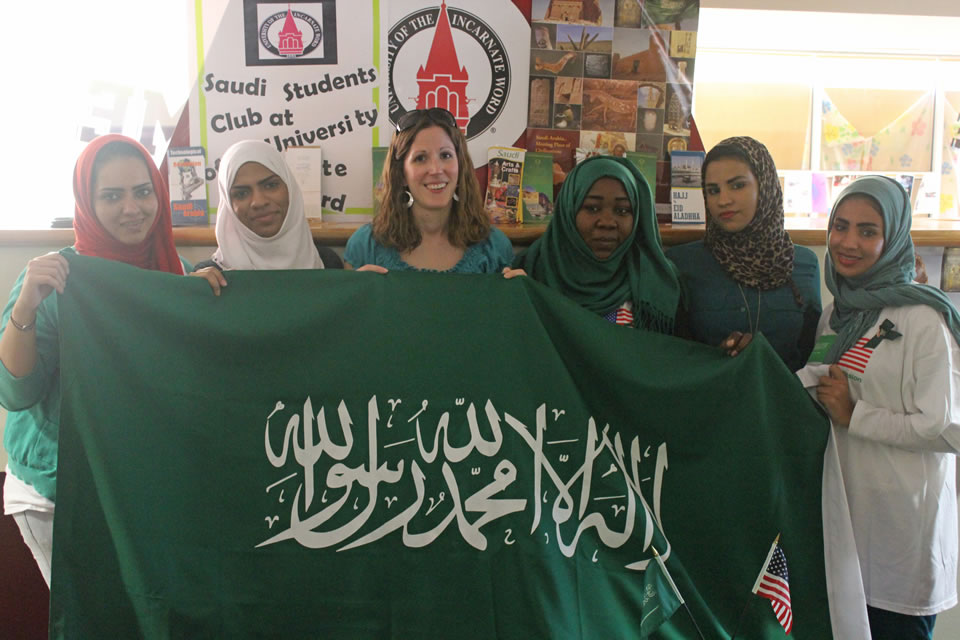
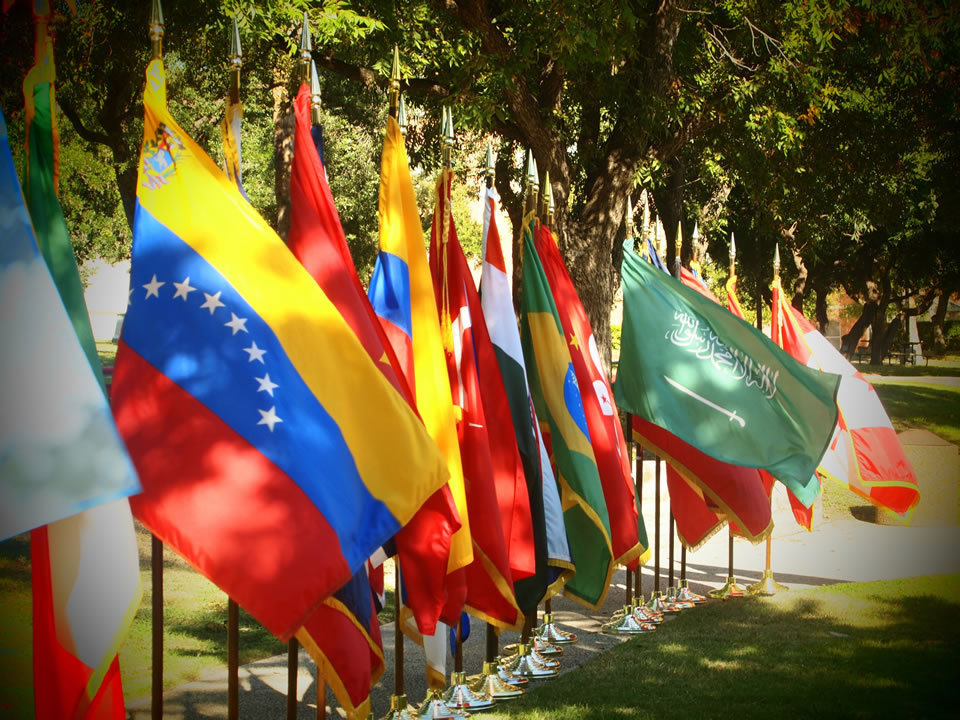

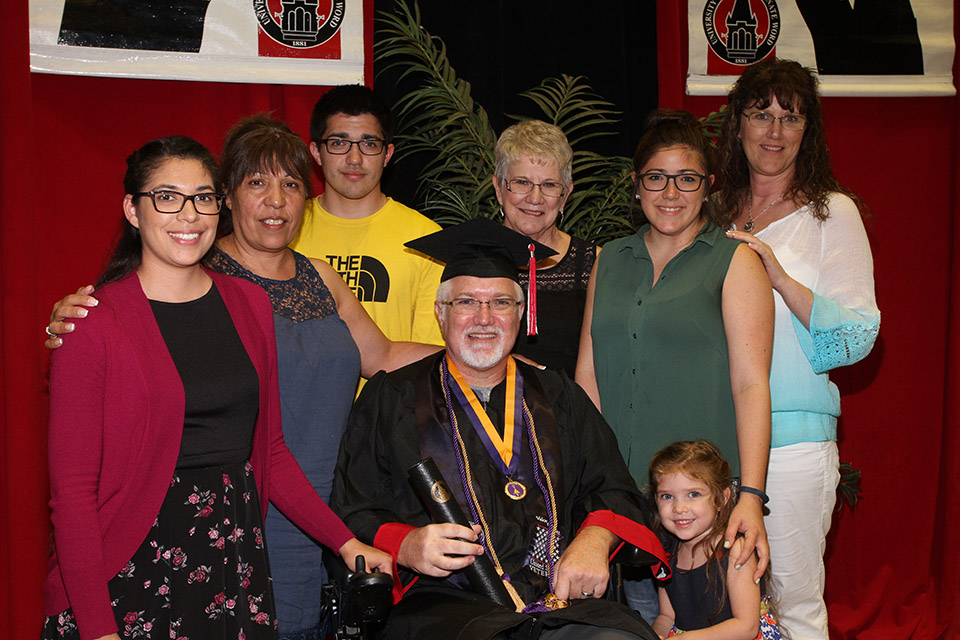
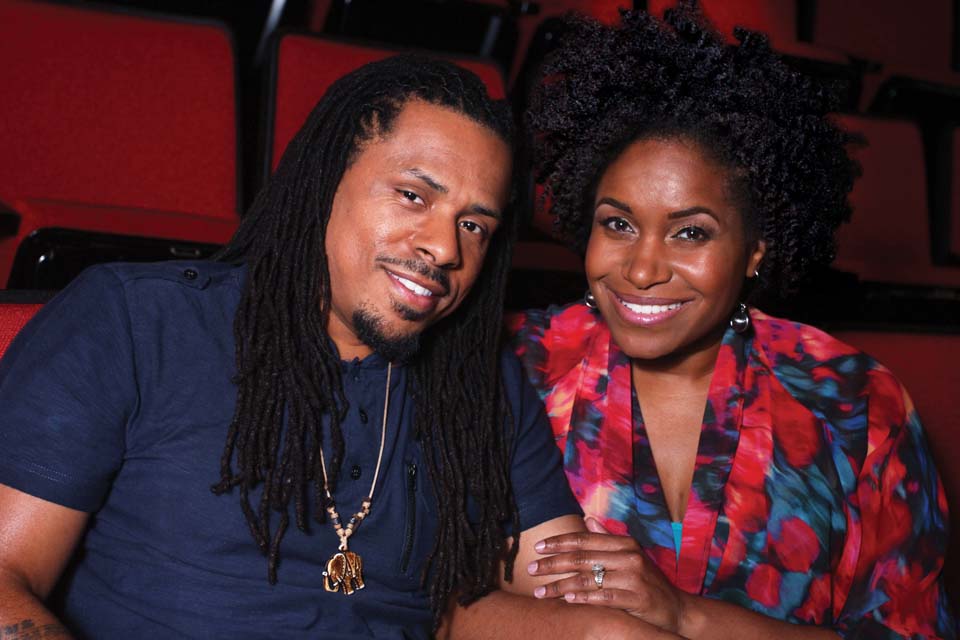
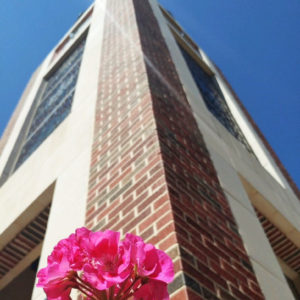
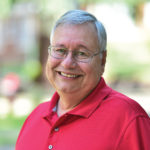
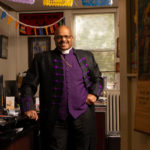
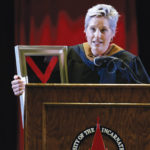
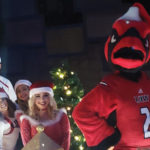
Thank you for doing this. The Saudi students on UIW are a very friendly group and i am glad that everyone in our community will be more aware of their presence.